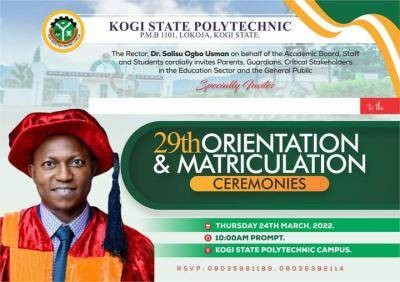
Nestled in the picturesque landscape of Ithaca, New York, Cornell University stands as a beacon of excellence in higher education.
Renowned for its prestigious academic programs, groundbreaking research initiatives, and vibrant campus community, Cornell has earned a distinguished reputation as one of the world’s leading universities.
In this article, we delve into what makes Cornell University known and explore the key factors that contribute to its esteemed status in the realm of academia.
Ivy League Membership: A Seal of Excellence

Cornell University’s membership in the Ivy League confers upon it a seal of excellence and prestige that is recognized worldwide.
The Ivy League, comprising some of the oldest and most prestigious universities in the United States, is synonymous with academic excellence, elite education, and intellectual tradition.
As a proud member of this esteemed consortium, Cornell University upholds the highest standards of scholarship, research, and teaching, placing it among the most revered institutions in the world.
Rich History and Tradition of Scholarship
Founded in 1865 by Ezra Cornell and Andrew Dickson White, Cornell University has a storied history and a tradition of scholarship that spans over a century and a half.
From its inception, the university was envisioned as a place where any person could find instruction in any study, embodying the ethos of inclusion, diversity, and academic freedom.
Over the years, Cornell has remained committed to this founding principle while continuously striving for excellence in education, research, and service to society.
Commitment to Critical Thinking and Intellectual Rigor
At Cornell University, a commitment to fostering critical thinking, creativity, and leadership skills lies at the heart of its academic mission.
The university’s rigorous academic programs challenge students to think critically, question assumptions, and explore new ideas across a wide range of disciplines.
Whether studying the humanities, social sciences, natural sciences, or engineering, students are encouraged to engage deeply with their coursework, collaborate with peers, and push the boundaries of knowledge through research and innovation.
Distinguished Faculty and Interdisciplinary Learning
Central to Cornell’s academic excellence is its distinguished faculty, composed of world-renowned scholars, researchers, and experts in their respective fields.
These accomplished academics bring a wealth of knowledge, experience, and insight to the classroom, inspiring students to pursue intellectual curiosity and academic excellence. Moreover, Cornell’s emphasis on interdisciplinary learning fosters collaboration across departments and disciplines, allowing students to explore diverse perspectives, synthesize ideas, and address complex real-world challenges.
This interdisciplinary approach to education not only enriches the learning experience but also prepares students to tackle the multifaceted problems of the modern world.
Read Here: what is brown university known for
A Multitude of Disciplinary Excellence
Cornell University stands out for its diverse and comprehensive academic offerings, covering an extensive range of disciplines from the arts and humanities to the sciences, engineering, agriculture, and beyond.
With over 100 fields of study and more than 4,000 courses available, Cornell provides students with an unmatched breadth and depth of educational opportunities.
This extensive array of programs allows students to explore diverse academic interests, delve into specialized areas of study, and tailor their education to align with their individual passions and career aspirations.
Liberal Arts Tradition and Beyond
At the core of Cornell’s academic landscape is its strong commitment to the liberal arts tradition, which emphasizes critical thinking, effective communication, and a broad-based understanding of the world.
Through its College of Arts and Sciences, Cornell offers a wide range of humanities, social sciences, and natural sciences programs that provide students with a well-rounded education and a foundation for lifelong learning and intellectual growth.
Excellence in Engineering and Applied Sciences
Cornell’s College of Engineering is renowned for its excellence in engineering education and research, offering innovative programs that prepare students to tackle complex technological challenges and drive forward advancements in science and engineering.
From aerospace engineering to computer science, biomedical engineering, and beyond, Cornell’s engineering programs provide students with hands-on experience, cutting-edge research opportunities, and a solid foundation for careers in engineering and technology.
Leadership in Business and Management
Cornell’s SC Johnson College of Business is recognized as one of the leading business schools in the world, offering top-ranked programs in business administration, hospitality management, and applied economics and management.
With a focus on experiential learning, interdisciplinary collaboration, and global perspectives, Cornell’s business programs equip students with the skills, knowledge, and networks needed to succeed in today’s dynamic and competitive business environment.
Innovation in Agriculture and Life Sciences
Cornell’s College of Agriculture and Life Sciences (CALS) is a pioneer in agricultural education, research, and extension, addressing critical challenges related to food security, sustainability, and environmental stewardship.
CALS offers a wide range of programs in agriculture, environmental sciences, nutritional sciences, and related fields, providing students with the tools and expertise to address pressing issues facing society and the planet.
Interdisciplinary Collaboration and Cross-Campus Initiatives
In addition to its individual colleges and schools, Cornell fosters interdisciplinary collaboration and cross-campus initiatives that bring together faculty and students from diverse disciplines to address complex societal challenges.
Through initiatives such as the Atkinson Center for a Sustainable Future, the Cornell Tech campus in New York City, and numerous research centers and institutes, Cornell promotes innovation, creativity, and collaboration across disciplinary boundaries, driving forward groundbreaking discoveries and solutions to global problems.
Leading the Way in Research and Innovation
Cornell University stands as a beacon of research excellence and innovation, with its faculty and students continuously pushing the boundaries of knowledge and making groundbreaking discoveries across a spectrum of disciplines.
From pioneering work in fields such as nanotechnology, biotechnology, and computer science to transformative research in agriculture, sustainability, and public policy, Cornell’s research endeavors have a profound impact on society and the world at large.
State-of-the-Art Facilities and Resources
At the heart of Cornell’s research enterprise are its state-of-the-art facilities and resources, which provide researchers with the tools and infrastructure needed to conduct cutting-edge investigations.
From advanced laboratories and research centers to specialized equipment and computing resources, Cornell’s research infrastructure supports a wide range of scientific inquiry and exploration, fostering innovation and collaboration across disciplines.
Interdisciplinary Collaboration and Partnerships
Cornell fosters a culture of interdisciplinary collaboration and partnerships, bringing together researchers from diverse fields to address complex challenges and drive forward transformative solutions.
Through initiatives such as the Cornell Atkinson Center for Sustainability and the Cornell Tech campus in New York City, the university promotes cross-disciplinary research and innovation, facilitating collaboration between academia, industry, and government to tackle pressing global issues.
Impactful Research Across Disciplines
Cornell’s research spans a broad spectrum of disciplines, with impactful contributions made in areas ranging from fundamental science and engineering to social sciences, humanities, and the arts.
Whether it’s developing new cancer therapies, advancing sustainable agriculture practices, or studying the societal impacts of emerging technologies, Cornell researchers are at the forefront of addressing some of the most pressing challenges facing humanity today.
Entrepreneurship and Technology Transfer
Cornell is committed to translating its research discoveries into real-world applications and solutions through entrepreneurship and technology transfer initiatives.
The university’s thriving startup ecosystem, including programs such as the Cornell Center for Technology Licensing and the eLab accelerator, supports faculty and student entrepreneurs in launching and scaling their ventures, driving economic growth and innovation in the process.
Global Impact and Leadership
With a global network of collaborators and partnerships, Cornell’s research extends its impact far beyond the campus borders, addressing global challenges and driving positive change around the world.
Whether through international research collaborations, development projects, or policy initiatives, Cornell researchers are leading efforts to address critical issues such as climate change, public health, and social inequality, making a tangible difference in the lives of people everywhere.
Read Here: is capella university accredited
Advancing Public Engagement and Social Impact
Cornell University stands as a beacon of public engagement and social impact, harnessing its expertise and resources to address pressing societal challenges and drive positive change.
Through a myriad of initiatives spanning public service programs, community outreach, and global partnerships, Cornell is dedicated to making a meaningful difference in the lives of individuals and communities worldwide.
Here’s how the university fulfills its commitment to advancing the greater good:
Community Outreach and Service Programs
Cornell’s commitment to public engagement is exemplified through its extensive community outreach and service programs. From volunteering at local schools and nonprofit organizations to participating in community development projects, Cornell students and faculty actively contribute to the well-being of surrounding communities.
These initiatives not only provide valuable support and resources but also foster meaningful connections and collaborations between the university and its neighbors.
Global Partnerships and Collaborations
In addition to local engagement, Cornell extends its reach through global partnerships and collaborations aimed at addressing global challenges and promoting sustainable development.
Through initiatives such as international research collaborations, development projects, and educational programs, Cornell works alongside partners around the world to tackle issues such as poverty, hunger, climate change, and social inequality. By leveraging its expertise and resources on a global scale, Cornell seeks to make a positive impact on the lives of people everywhere.
Research with Real-World Applications
Central to Cornell’s commitment to public engagement is its emphasis on research with real-world applications.
Faculty and students across disciplines are engaged in research that directly addresses societal issues and contributes to the betterment of communities.
Whether it’s developing technologies to improve access to clean water, conducting policy research to inform decision-making, or studying social dynamics to foster inclusivity, Cornell’s research endeavors are driven by a desire to create positive change and improve lives.
Advocacy and Policy Engagement
Cornell University actively engages in advocacy and policy initiatives to promote social change and influence decision-making at local, national, and global levels.
Through research-backed advocacy campaigns, policy analysis, and public forums, Cornell advocates for evidence-based solutions to complex issues such as environmental sustainability, social justice, and public health.
By lending its expertise and voice to important social and political debates, Cornell contributes to shaping policies and practices that advance the public good.
Education for Social Responsibility
As an educational institution, Cornell is committed to preparing students to be socially responsible leaders and global citizens.
Through curricular and extracurricular activities focused on ethics, citizenship, and social responsibility, Cornell fosters a culture of civic engagement and ethical leadership among its students.
By instilling values of empathy, compassion, and integrity, Cornell empowers its graduates to make a positive impact in their communities and contribute to a more just and equitable world.
Fostering a Vibrant Campus Life and Student Experience
Cornell University isn’t just about academics and research; it also offers a vibrant and dynamic campus life that enriches the overall student experience. Here’s how Cornell cultivates a lively campus atmosphere and provides students with opportunities for personal growth and enrichment:
Diverse Extracurricular Activities and Organizations
With over 1,000 student clubs and organizations covering a wide range of interests, Cornell offers something for everyone.
Whether students are passionate about performing arts, community service, cultural awareness, or outdoor recreation, they can find like-minded peers and pursue their interests outside the classroom.
These extracurricular activities provide valuable opportunities for students to develop leadership skills, build friendships, and explore new passions.
Cultural Events and Diversity Initiatives
Cornell celebrates diversity and cultural awareness through a variety of events, programs, and initiatives throughout the academic year.
From multicultural festivals and international film screenings to guest lectures and panel discussions on social issues, there are numerous opportunities for students to engage with diverse perspectives and experiences.
Cornell’s commitment to fostering inclusivity and intercultural understanding enriches the campus community and promotes dialogue and mutual respect among students from different backgrounds.
Scenic Campus Setting and Outdoor Recreation
Nestled in the picturesque Finger Lakes region of New York, Cornell’s campus provides a stunning backdrop for learning, relaxation, and recreation.
Students can take advantage of the university’s natural surroundings by exploring hiking trails, participating in outdoor sports, or simply enjoying the beauty of the landscape.
Cornell’s scenic campus offers a tranquil escape from the hustle and bustle of daily life, allowing students to recharge and rejuvenate amidst nature’s beauty.
Tradition of Excellence and Alumni Success
Cornell University takes pride in its tradition of excellence and boasts a roster of distinguished alumni who have achieved success in their respective fields.
From Nobel laureates and Pulitzer Prize winners to CEOs of Fortune 500 companies and world leaders, Cornell alumni have made significant contributions to society and have left a lasting legacy.
The university’s strong alumni network provides students with valuable connections, mentorship opportunities, and resources as they navigate their academic and professional journeys.
Read Here: how to get into brown university
Conclusion:
Cornell University is known for its Ivy League prestige, academic excellence, diverse academic offerings, cutting-edge research, commitment to public engagement and social impact, vibrant campus life, and tradition of alumni success.
As a global leader in higher education, Cornell continues to uphold its mission of teaching, discovery, and engagement while preparing students to become leaders and innovators in a rapidly evolving world.



